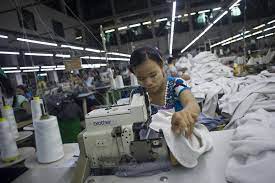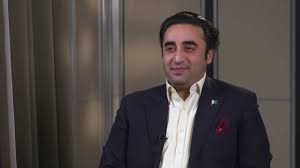EU imports from Myanmar surge despite sanctions

Brussels: The EU last week imposed its seventh round of sanctions on individuals and companies associated with Myanmar’s military junta, which orchestrated a brutal coup in February 2021.
The latest sanctions mean that almost all ministers of the State Administration Council (SAC), the junta’s formal name, have been affected, as have many companies with links to the military regime.
Brussels says it has been steadfast in cutting off any form of interaction that could be perceived as legitimizing a junta accused of widespread human rights violations against civilians.
A disparate group of anti-junta forces, coalesced around the shadow National Unity Government (NUG), have launched a nationwide revolution to create a new democratic federal state. But questions have been raised about the EU’s growing trade with Myanmar, which increased by almost 80% last year compared to 2021.
Over two years after a coup that ousted the elected government, led by the democracy icon Myanmar, international experts say time is running out to effect real change in Myanmar. Some observers say the political situation in the country has been ignored because of the ongoing war in Ukraine.
At least 6,000 civilians have been killed since February 2021, according to a report published last month by the Peace Research Institute Oslo.
While praising the European Union’s latest sanctions, the campaign group Justice For Myanmar argued in a statement last week that the pace of Western sanctions has been “too slow and lacks coordination.”
According to Justice for Myanmar, “these governments and their allies need to do far more to cut the junta’s access to funds, arms, equipment and technology.”
According to the European Council’s readout on the latest tranche of sanctions, these restrictive measures come in addition to “the freezing of all EU assistance that may be seen as legitimizing the junta.”
Some observers say increasing trade between the European Union and Myanmar does just that. Despite the coup, Myanmar hasn’t lost its trade privileges under the EU’s Everything But Arms scheme.
The European Union imported goods worth €4.3 billion ($4.75 billion) from Myanmar in 2022, up from €2.6 billion the previous year, nearly an 80% increase, according to the European Commission.
By comparison, US trade with Myanmar increased by only 4% from 2021 to 2022, according to US data.
EU exports to Myanmar also increased in 2022, from about €300 million to €368 million.
Some EU companies that remain active in Myanmar have come under criticism for providing funds for the junta through taxation.
In April, Justice For Myanmar reported that Dutch-based Heineken and the Danish-owned Carlsberg, two alcohol companies, have paid tens of millions of dollars in taxes to the Myanmar military junta.
The following month, IndustriALL Global Union, a Switzerland-based federation that has previously called on the EU to cancel its trade privileges for Myanmar, wrote a public letter to the European Parliament calling for further economic measures.
“All economic activity by European companies brings foreign exchange into the country,” the federation argued. “EU consumers, by buying products made in Myanmar, are inadvertently funding the regime.”
In addition to providing revenue for the military regime, some analysts argue that increased trade with the European Union also inadvertently supports the junta’s claims that it can ensure business as usual in Myanmar.
“What kind of signal is the EU sending to the protesters on the ground? One where the EU does not care about them,” Kristina Kironska, a Bratislava-based academic who specializes in Myanmar, told DW.
Although the European Union only accounted for 7% of all Myanmar exports in 2021, the junta is using such trade flows for “propaganda purposes in order to normalize its rule,” Kironska said.
Linn Thant, the NUG’s envoy to the Czech Republic, which was one of the first EU countries to host an NUG office, was more diplomatic.
“We welcome the EU’s targeted sanctions, but it is necessary to act more and more,” Thant told DW.
One of the NUG’s aims is to stop the flow of revenue and taxes obtained from both local and foreign trade that, Thant said, “can provide advantage to the military junta and are directed towards destruction for the country.”
“We aim to encourage the emergence of accountable and responsible investment businesses to prevent irresponsible and excessive extraction of natural resources,” Thant said.
But the issue of trade swings on how one defines the European Union’s responsibility to protect.
“While I am all for choking off the SAC and military-owned corporations of funds, there is an imperative to keep people employed, especially women who dominate the textile sector,” said Zachery Abuza, professor at the National War College in Washington.
Ranieri Sabatucci, the European Union’s ambassador to Myanmar, told DW that about 700,000 people rely on jobs in the country’s export-focused apparel industry. Almost 370,000 of those jobs depend on trade with EU buyers.
More than two-thirds of the workers are young women, and the majority are migrants.
“So there are several hundred thousand, mostly rural, families depending on these incomes, half a million children,” Sabatucci said.
“Consider the implications if these livelihoods disappear,” Sabatucci added. “The effort of the EU is to maintain and protect these jobs.”
The issue of taxation is also more complicated than the headline numbers suggest, Sabatucci said.
Myanmar doesn’t have an export duty on most goods. Domestic taxes paid by the sectors that export goods to EU markets are minimal. Almost all workers, except managers, are below the threshold for taxable income, Sabatucci reckoned.
As such, the junta is gaining far less revenue from these export industries than it does from the energy sector, which the European Union has already imposed sweeping sanctions on.
Analysts also say that not all taxation goes straight into the pockets of the military leaders or, indeed, funds atrocities against civilians.
There is a growing sense that the international community, including the European Union, needs to do more to effect real change in Myanmar.
Tom Andrews, the UN special rapporteur on Myanmar, recently told British media that the international community must “step in in a much more significant way” to support the people fighting the military junta.
“Yes, there are lots of expressions of concern, but people can’t survive on expressions,” Andrews said. “They need help and support.”





